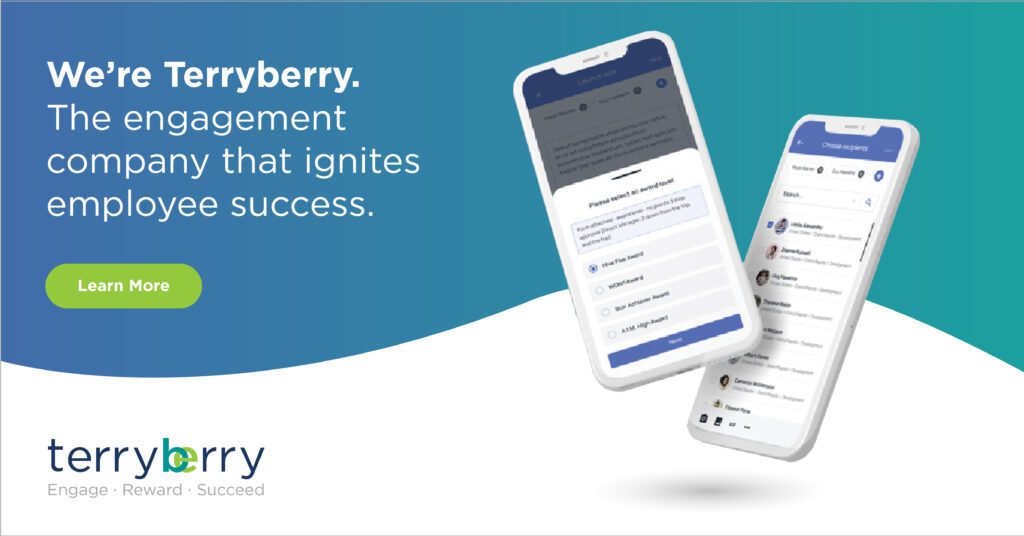December 8, 2023


What is a retention bonus, and is it something you need to worry about in 2024?
Today's modern workforce doesn't seem to like staying in place too long, which can be bad for business, culture, and bottom lines. Replacing an employee can cost one-half to two times the employee's annual salary (and that's on the conservative side).
That's where a retention bonus can come in handy.
A retention bonus encourages employees to stick around longer, giving your company a competitive edge as it navigates economic challenges, growth, competition, mergers, acquisitions, and pivotal projects. However, it's not about just throwing more money at your workforce and expecting them to stay—you'll need to be strategic with your retention bonuses to implement them effectively.
"Research suggests that today's college graduates will have a dozen or more jobs by the time they hit their 30s," says Emily He, former SVP of human capital management at Oracle. And that's not necessarily because you're doing something, but it might mean you could be doing something better.
It is important for employers and employees to understand what constitutes an employee retention bonus, why it's offered, and how it differs from other bonus types.
- For employers, it's about making informed decisions on when and how to use this tool effectively.
- For employees, it's about recognizing the value of their contribution and the opportunities that come with staying committed to their current position.
This guide to employee retention bonuses will walk you through everything you need to know to build the right types of incentives and implement them to achieve your retention goals.
What Is a Retention Bonus?
A retention bonus, or sometimes called retention pay, is a financial incentive offered by an organization to key employees as a means of encouraging them to remain with the company for a specified period (particularly during critical phases of business operations). It's usually a one-time payment made to an employee as a reward for loyalty and continued service.
It differs from other forms of bonuses, such as a sign-on bonus or performance-based bonus. While performance bonuses reward past achievements, and sign-on bonuses are an upfront incentive for joining a company, retention bonuses are future-oriented. They're designed to motivate employees to stay with your company long-term.
Your decision to offer retention bonuses should be strategic and data-driven. It involves identifying which roles are critical to the company's operations and which individuals (if they were to leave) would significantly impact the business. Retention bonuses reflect your company's recognition of an employee's specialized skills, experience, or knowledge that is difficult to replace.
Types of Retention Bonuses
Retention bonuses can come in a few shapes and sizes. These bonuses can take different forms and may be targeted to specific groups or a key employee within your company, such as senior executives or a highly skilled worker. The structure of these bonuses often varies based on industry norms, job roles, and your business's strategic goals.
Consider these types of employee retention bonuses when establishing your own structure:

Lump Sum Payment
A lump sum payment is a typical retention bonus option. This type of bonus is typically a one-time payment made to an employee at the end of a specified period, often after completing a critical project or a significant company transition.
The lump sum payment is straightforward and transparent in its terms, making it a popular option for both the employee and the employer.
Incremental Payments/Supplemental Wages
Incremental payments structure the retention bonus into smaller payments added to an employee's salary as supplemental wages distributed over the retention period . This approach can motivate employees to stay with the company and can be particularly effective when long-term commitment is crucial.
Equity-Based Payments
Some companies offer stock options as part of their retention payments, particularly to senior executives or key employees. This type of bonus grants the employee the right to purchase company stock at a predetermined price after a certain period or upon achieving specific milestones.
This serves as a retention tool and aligns the employee's interests with the company's long-term success.
Another equity-based option is Restricted Stock Units (RSUs). RSUs are company shares given to an employee that vest over time. The vesting schedule of RSUs typically coincides with the retention period, incentivizing employees to stay with the company until their RSUs fully vest.


Project Completion Bonus
For roles critical to the completion of specific projects, you might offer a bonus paid out upon the successful completion of that project. This type of bonus is prevalent in industries like construction, IT, or consulting, where projects have a defined end date.
Tiered Retention Bonus
Companies sometimes implement a tiered system where the bonus amount increases the longer an employee stays. This structure can effectively retain employees over a more extended period as the incentive grows with time and is added to the employee's base pay.
Customized Retention Package
Consider creating customized retention packages that align with the specific wants and needs of your key employees. Your retention bonus package might include a mix of financial bonuses, additional benefits (like extra vacation days), talent development opportunities, or other perks tailored to the individual employee's preferences and motivations.
Should Your Business Use a Retention Bonus?
Not sure if a retention bonus is right for your company and its situation? While we can't make that decision for you, we can give you all the information you need to make this important decision.


Businesses That Tend to Benefit from a Retention Bonus Strategy
- High-Turnover Industries: Businesses with high turnover rates may offer a retention bonus as a way to incentivize key employees to stay, reducing recruitment and training costs.
- Companies Undergoing Major Changes: Organizations going through mergers, acquisitions, or significant restructuring often use an employee retention bonus strategy to ensure stability and continuity by retaining critical staff.
- Businesses with Specialized Roles: Companies that rely on employees with specialized skills or knowledge (where replacement is difficult and costly) can use retention bonuses to maintain these valuable team members.
- Startups and Tech Companies: These companies often face fierce talent competition and may use retention bonuses, including equity-based financial incentives, to keep key personnel.
When to Use a Retention Bonus
- During Critical Projects: When a project is crucial to your company's success and specific team members are integral to its completion.
- In Times of Organizational Change: Such as mergers, acquisitions, or leadership changes, where employee turnover can be particularly disruptive.
- To Retain Top Performers: Especially in competitive job markets where these individuals might have numerous opportunities elsewhere.
Pros and Cons of Retention Bonuses
While employee bonuses might sound like a no-brainer for some organizations, a financial incentive is not always the right fit for everyone. While there are plenty of advantages, a few notable drawbacks make retention bonuses impractical in some situations.
Pros:
- Improved Retention: When executed successfully, you can benefit from long-term retention for more of your top performers, allowing you to focus on growing your business instead of battling attrition.
- Employee Motivation and Loyalty: Retention bonuses can boost morale and foster a sense of loyalty among employees.
- Reduces Turnover Costs: By retaining employees, companies can save on the costs associated with hiring and training new staff.
- Maintains Continuity: Especially important during periods of change or for long-term projects.
Cons:
- Financial Burden: Retention bonuses can be a significant financial commitment, especially for smaller businesses or those with tight budgets.
- Potential for Discontent: If not appropriately managed, retention bonuses can create a sense of inequality among employees.
- Short-Term Solution: They may not address underlying issues causing employee dissatisfaction and turnover.
- Dependency Risk: Employees might become accustomed to a monetary incentive and expect them as part of their regular compensation.
Ultimately, a retention bonus will likely never be an end-all-be-all solution for company loyalty. Instead, it should be used as a single, tactical method in combination with other programs and initiatives.


How to Offer Retention Bonuses (Criteria and Process)
Implementing a retention bonus program requires careful planning and consideration.
First, you'll want to consider whether you need this incentive. Remember, it will cost you to keep employees with this financial reward strategy, much more than it would with an effective engagement or employee recognition program. Plus, you don't want to pay employees extra for sticking with your business if they aren't likely to leave anyway.
If you decide this is the path you want to go down, you'll need to consider a few other factors, such as the offering criteria, amount, duration, and process for identifying eligible employees.
Factors Influencing the Decision to Offer a Retention Bonus
Need help deciding if a retention bonus is suitable for your workforce? Consider these factors:
- Employee's Role and Impact: Assess the significance of the employee's role in the company. Key factors include their responsibilities, the impact of their work on business operations, and the difficulty in replacing their skill set.
- Performance and Potential: Evaluate employees based on their performance and potential for future contributions. High-performing employees who show growth potential are often ideal candidates.
RELATED: High-Potential Employees: 5 Ways to Identify & Develop Your Most Valuable Employees
- Succession Planning: Consider employees who are critical to succession plans. Retaining individuals being groomed for leadership or other key roles is often essential, though it might not look like it on paper.
- Specialized Knowledge: Employees with technical knowledge or skills critical to the business and hard to find in the job market are prime candidates for retention bonuses.
- Market Demand: Consider the current job market and industry trends. High demand for specific roles or skills might necessitate retention bonuses to keep valuable employees from moving to competitors.
- Company's Financial Health: The decision should align with the company's financial situation. Offering retention bonuses should be sustainable and not negatively impact your company's finances.


Determining the Bonus Amount and Retention Period
There's no one-size-fits-all retention bonus we can recommend. The specific amount and retention duration will revolve around market standards, economic situations, and individual employee value:
- Assessing Employee Value: The bonus amount should reflect the employee's value to the company. This can be based on the employee's salary, the critical nature of their role, and their contribution to the company.
- Market Standards: Research industry standards for retention bonuses to ensure your offer is competitive.
- Retention Period: The duration the employee must stay to receive the bonus should be clearly defined. This period typically aligns with business needs, such as project completion or transition phase.
- Payment Structure: Decide whether the bonus will be a lump sum or distributed in increments. This decision can be influenced by the length of the retention period and the company's financial planning.
- Legal and Ethical Aspects: Ensure the retention bonus agreement is legally compliant and ethically sound. It should be fair, transparent, and non-discriminatory.
What Your Retention Bonus Agreement Should Entail
Your retention bonus agreement serves as a legal document that outlines the terms and conditions of the bonus. It'll need to be straightforward to ensure mutual understanding between your business and its employees, and it'll also need to comply with all legal considerations.
We're not a replacement for legal advice—always work with professional counsel when drafting legally binding documents, such as a retention bonus agreement.


Here's an overview of what your retention bonus agreement should include:
- Bonus Amount: Clearly state the total amount of the retention bonus and, if applicable, the schedule of payments.
- Retention Period: Define the period during which the employee must remain with the company to be eligible for the bonus. This could be tied to a project completion date, a certain number of months or years, or another significant milestone.
- Conditions for Payout: Detail any conditions that must be met for the bonus to be paid. This might include performance criteria, the completion of specific objectives, or remaining with the company until a specified date.
- Repayment Clauses: In some cases, agreements include clauses that require the employee to repay the bonus if they leave the company before the end of the retention period.
- Confidentiality Terms: These terms can be included to ensure that the agreement details remain confidential between the employer and the employee.
- Tax Implications: Acknowledge that the bonus is subject to taxation and clarify how taxes will be handled with a tax professional.
Your agreement should comply with all relevant employment laws and regulations. This includes adhering to wage and hour laws, tax laws, and industry-specific regulations.
You'll also need to ensure your retention bonuses are free from any discriminatory practices (or even the appearance of discrimination). Decisions on who receives a retention bonus should be based on objective business criteria.
Best Practices for Implementing Retention Bonuses
Implementing retention bonuses effectively requires more than just deciding on the amount and drafting an agreement. It involves strategic planning, clear communication, and alignment with broader organizational goals.
Here are some best practices to help you successfully implement retention bonuses at your business.


1. Align with Overall Business Strategy
Your retention bonus program should align with the overall business strategy and objectives. It should support key business initiatives, such as navigating through significant transitions or retaining talent in critical roles.
Consider how the retention bonus fits into your long-term talent management and employee engagement strategies. Think of how this might complement (or deter) other initiatives you might have in place or consider launching in the near future.
2. Provide Clear Communication
Communicate the retention bonus's purpose, terms, and conditions to eligible employees. Transparency is crucial to avoid misunderstandings and ensure employees feel valued and fairly treated.
The last thing you want is for people to be hurt, confused, or angry (which is always possible when it comes to finances). In some situations, it might be best to announce these retention bonuses to the entire business, even if everyone isn't eligible. This makes it feel less like behind-the-scenes deals that ineligible employees might feel snubbed about.
Establish channels for employees to ask questions or express concerns about the retention bonus program. This open dialogue can help address issues and improve the program's effectiveness.
3. Monitor, Evaluate, and Iterate
Regularly monitor and evaluate the effectiveness of the retention bonus program. Assess whether it achieves its intended goals, such as reducing turnover rates or maintaining productivity during critical periods.
Be prepared to adjust the program based on employee feedback and changing business needs. You'll need to be flexible to ensure the program remains relevant and practical.
4. Integrate with Other Initiatives
Integrate retention bonuses with other HR initiatives, such as career development programs, performance management, wellness programs, and employee recognition programs. This holistic approach enhances the overall impact of your retention strategies.
RELATED: A Step-By-Step Guide to Developing Employee Wellness Programs
5. Personalize to Employees
Take the time to understand what motivates your employees. While financial incentives are significant, aligning the retention bonus with what employees value can increase its effectiveness.
Where possible, tailor the retention bonus program to meet individual employees' unique needs or circumstances, especially when dealing with highly specialized or key roles.


6. Plan for Inevitable Exits
Don't assume everyone will stick around for their bonuses.
Even with retention bonuses, some employees may choose to leave—plan for these departures by developing transition plans and succession strategies to minimize disruption. Use engagement surveys and stay interviews to understand how employees feel and why they might leave, even after receiving a retention bonus. This information can be invaluable in adjusting your retention strategies moving forward.
RELATED: What is an Employee Engagement Survey? And Why Should You Care?
Transform Employee Engagement with Terryberry
While a retention bonus can be a powerful tool in holding onto your employees, it'll only work in the long term with a holistic employee engagement strategy. That's where we can help.
Terryberry offers a comprehensive platform to drive employee engagement at your company. With solutions encompassing employee recognition, wellness programs, and insightful metrics and analytics, Terryberry provides the tools to create a more engaged, purpose-led organization.
We designed our platform to save time and resources for administrators while boosting employee engagement, making it an ideal choice for businesses of all sizes.
See for yourself. Schedule a demo with our team to learn how Terryberry can help transform employee engagement and boost retention at your organization.


